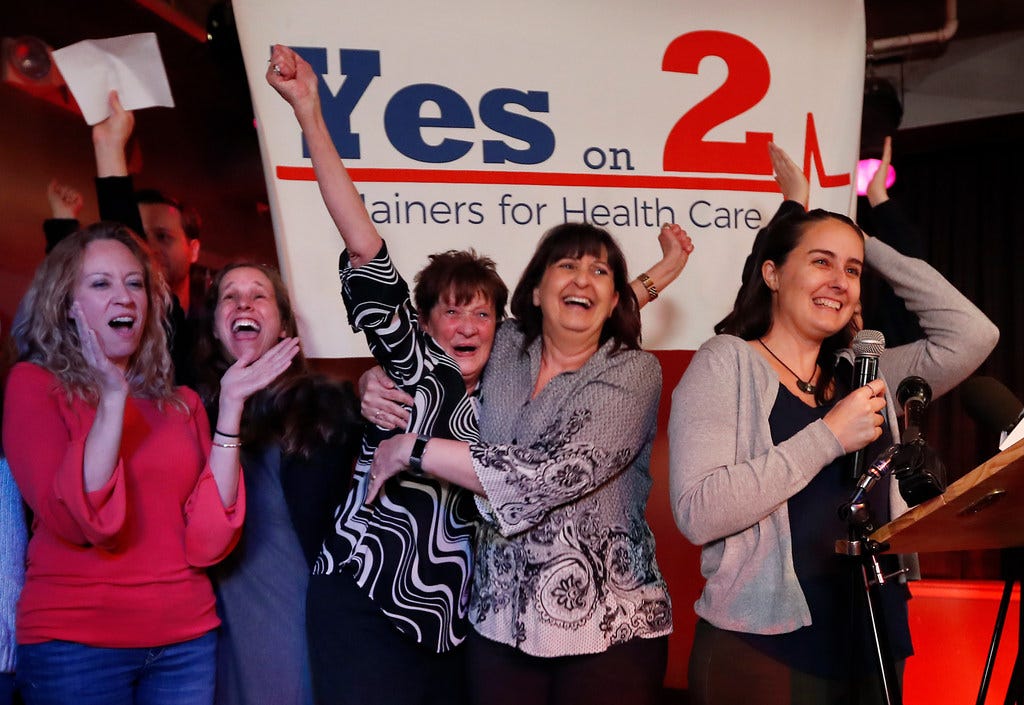KSDK St. Louis: Does it work to dangle a carrot for patients to take healthy steps?
Patricia Alexander knew she needed a mammogram but just couldn’t find the time.
“Every time I made an appointment, something would come up,” said Alexander, 53, who lives in Moreno Valley, Calif.
Over the summer, her doctor’s office, part of Vantage Medical Group, promised her a $25 Target gift card if she got the exam. Alexander, who’s insured through Medi-Cal, California’s version of the Medicaid program for lower-income people, said that helped motivate her to make a new appointment — and keep it.
Health plans, medical practices and some Medicaid programs are increasingly offering financial incentives to motivate Medicaid patients to engage in more preventive care and make healthier lifestyle choices.
They are following the lead of private insurers and employers that have long rewarded people for healthy behavior such as quitting smoking or losing weight. Such changes in health-related behavior can lower the cost of care in the long run.
“We’ve seen incentive programs be quite popular in the insurance market, and now we are seeing those ramp up in the Medicaid space as well,” said Robert Saunders, research director at the Margolis Center for Health Policy at Duke University.


Medicaid expansion supporters celebrate victory, Portland, Maine, Nov. 7, 2017.
Medicaid patients who agree to be screened for cancer, attend health-related classes or complete health risk surveys can get gift cards, cash, gym memberships, pedometers or other rewards. They may also get discounts on their out-of-pocket health care costs or bonus benefits such as dental care.
Under the Affordable Care Act, 10 states received grants totaling $85 million to test the use of financial rewards as a way to reduce the risk of chronic disease among Medicaid patients. During the five-year demonstration, states used the incentives to encourage people to enroll in diabetes prevention, weight management, smoking cessation and other preventive programs. The states participating were California, Connecticut, Hawaii, Minnesota, Montana, Nevada, New Hampshire, New York, Texas and Wisconsin.
Medi-Cal, for example, offered gift cards and nicotine replacement therapy to people who called the state’s smoking cessation line. Minnesota’s Medicaid program handed out cash to people who attended a diabetes prevention class and completed bloodwork.
An evaluation of these programs, released in April, showed that incentives help persuade Medicaid beneficiaries to take part in such preventive activities. Participants said gift cards and other rewards also helped them achieve their health goals. But the evaluators weren’t able to show that the programs prevented chronic disease or saved Medicaid money. That’s in part because those benefits could take years to manifest, according to the evaluation.
Research on the effectiveness of financial incentives for the Medicaid population has been mixed. A report this year by the Center on Budget and Policy Priorities found that they can induce people to keep an appointment or attend a class but are less likely to yield long-term behavior changes, such as maintaining weight loss. In some cases, the report said, incentives are given to people to get exams they would have gotten anyway.
Some of the biggest factors preventing Medicaid patients from adopting healthful behaviors are their personal circumstances, said Charlene Wong, a pediatrician and health policy researcher at Duke University.
That makes administering incentive programs more complicated. Even recruiting and enrolling participants has been a challenge for some states that received grants through the Affordable Care Act.
“The thing that is most likely to help Medicaid beneficiaries utilize care appropriately is actually just giving them access to that care — and that includes providing transportation and child care,” said Hannah Katch, one of the authors of the report by the Center on Budget and Policy Priorities. Another barrier is being able to take time off work to go to the doctor.
Still, health plans are eager to offer patients financial incentives because it can bring their quality scores up and attract more enrollees. And medical groups, which often receive fixed payments per patient, know they can reduce their costs — and increase their profits — if their patients are healthier.
Read more at KSDK St. Louis.